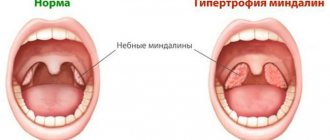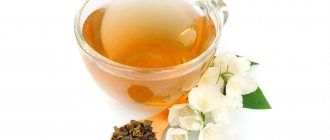Momordica charantia (Bitter Melon)
Bitter melon is a green, cucumber-shaped melon that has a very bitter taste.
It is consumed in Asian, African and Caribbean countries, but is less popular in other areas.
Bitter melon is rich in phytochemicals such as triterpenoids, polyphenols and flavonoids, which have been shown to slow the growth of various types of cancer in both test tube and animal studies (,).
It is also used in alternative medicine to lower blood sugar levels in people with diabetes.
One 4-week study found that consuming 2,000 mg of dried bitter melon powder each day significantly lowered blood sugar levels in people with diabetes, but not as much as a regular diabetes drug ().
A larger review found mixed results in people and determined that the evidence was insufficient to recommend bitter melon supplements for people with diabetes ().
Like most bitter foods, bitter melon is rich in antioxidants, which help prevent cell damage caused by free radicals and may reduce the risk of heart disease and diabetes (, , ).
Summary:
Bitter melon is rich in natural phytochemicals that may help prevent cancer, reduce oxidative stress, and lower blood sugar levels.
Constant feeling of bitterness
When a bitter taste in the mouth appears regularly, this indicates serious disorders and diseases. If you experience persistent bitterness, you should urgently visit a doctor who will help determine the diagnosis of the condition. A regularly occurring bitter sensation in the oral cavity may be a sign of cholecystitis, cholelithiasis, oncological diseases of the gastrointestinal tract, endocrine or mental.
Cruciferous vegetables
The cruciferous family includes many bitter or strong-tasting vegetables, including broccoli, Brussels sprouts, cabbage, kale, radishes and arugula.
These foods contain compounds called glucosinolates, which give them a bitter taste and are associated with many health benefits ().
Test-tube and animal studies have shown that glucosinolates can slow the growth and spread of cancer cells, but these results have not been consistently replicated in human studies (, , ).
Although some evidence suggests that people who eat more cruciferous vegetables have a lower risk of cancer, not all studies are consistent (, ).
Some researchers believe this discrepancy may be due to genetic differences between individuals, as well as natural differences in glucosinolate levels due to vegetable growing conditions and cooking methods. Therefore, additional research is needed (,).
In addition to their potential cancer-fighting effects, the glucosinolates in cruciferous vegetables help your liver enzymes process toxins faster, reducing their negative effects on your body ().
Although no official recommendations have been established, some studies suggest that eating at least five servings of cruciferous vegetables per week provides the greatest health benefits ().
Summary:
Cruciferous vegetables such as broccoli and cabbage contain powerful anti-cancer compounds and may improve the liver's ability to process toxins.
How to remove bitterness in the mouth, the cause of which has not been established?
If the cause of bitterness in the mouth is not determined, it is recommended:
- Frequent meals in small portions are effective for women in late pregnancy, in whom bitterness is caused by the pressure of the fetus on the digestive organs;
- Smoking cessation or restrictions – if bitterness is caused by disorders of the taste buds due to constant exposure to tobacco smoke;
- Taking probiotic medications to normalize the microflora and cleanse them from parasites is an effective method if the bitterness is caused by a parasitic invasion, as is the case with giardiasis;
- Detoxification of the body and cleansing of the intestines with the help of sorbents - helps with bitterness caused by food poisoning;
- A diet that excludes fatty and heavy foods, as well as spices, spicy, smoked foods - helps if a bitter taste in the mouth appears due to indigestion;
- Normalizing sleep and rest patterns, eliminating stress factors, playing sports and walking in the fresh air - if bitterness accompanies neurological pathologies and mental disorders.
Bitterness in the mouth cannot be treated at home with the help of medications, since this is not a disease, but just one of the symptoms of body disorders, each of which requires an individual approach to treatment.
Dandelion greens
You might think that dandelions are just a weed, but their leaves are edible and very nutritious.
Edible dandelion greens are medium-sized, bright green leaves with jagged edges. It can be added to salads, fried as a side dish, or included in soups and pasta.
Because dandelion greens are very bitter, their flavor is often drowned out by other additives such as garlic or lemon.
Although little research has been done into the medicinal properties of dandelion greens, the leaves have been found to be rich in many vitamins and minerals, including calcium, manganese, iron, and vitamins A and K ().
They also contain the carotenoids lutein and zeaxanthin, which protect your eyes from cataracts and macular degeneration (macular degeneration).
What's more, dandelion greens are an excellent source of the prebiotics inulin and oligofructose, which promote the growth of healthy gut bacteria ().
Summary:
Dandelion greens are rich in vitamins and minerals, and contain carotenoids that benefit eye health and are a source of prebiotics that promote the growth of beneficial gut bacteria.
Appears after eating cedar
After eating pine nuts, even a completely healthy person may experience bitterness in the mouth. Usually this phenomenon is mistakenly attributed to the choleretic properties of the product, but such a reaction cannot occur with high-quality pine nuts.
Meanwhile, bitterness in the mouth appears immediately after eating and lasts for several days; sometimes other symptoms of intoxication may appear - nausea and pain in the liver area. All this clearly indicates that the pine nuts were artificially grown and imported from China. Many suppliers pass off Chinese nuts as domestic products, since they are cheaper to purchase. But there are many reasons why it is better to refuse such a food product.
Citrus fruit peel
While the pulp and juice of citrus fruits such as lemons, oranges, and grapefruits taste sweet, sour, or tart, the outer shell and white pith are quite bitter.
This is due to the presence of flavonoids, which protect the fruit from being eaten by pests, but have many beneficial properties for human health.
In fact, the peels of citrus fruits contain a higher concentration of flavonoids than any other part of the fruit ().
Two of the most common citrus flavonoids are hesperidin and naringin, which are powerful antioxidants ().
Test-tube and animal studies suggest that citrus flavonoids may help fight cancer by reducing inflammation, improving detoxification, and slowing the growth and spread of cancer cells, but human studies are needed ().
If you want to include citrus fruit peels in your diet, they can be chopped and used as zest, dried and used in seasoning blends, or even candied into candied fruit that can be added to desserts.
Summary:
Citrus fruit peels have a bitter taste due to their high concentration of flavonoids. These powerful antioxidants may reduce inflammation and help protect against cancer.
Cranberry
Cranberries are tart, bitter red berries that can be eaten raw, cooked, dried, or juiced.
They contain a type of polyphenol called proanthocyanidin type A, which can prevent bacteria from sticking to the mucous surfaces of your body.
This may be useful for reducing bacterial tooth decay, reducing the risk of Helicobacter pylori infection in the stomach, and even preventing urinary tract infections (, , , ).
Although many of these studies were conducted in test tubes or on animals, the results from human studies are promising.
One 90-day study found that drinking about two cups (500 ml) of cranberry juice every day helped eliminate Helicobacter pylori stomach infections three times more effectively than a placebo ().
Other studies have shown that a daily dose of cranberry supplements containing at least 36 mg of proanthocyanidins can significantly reduce the incidence of urinary tract infections (UTIs), especially in women (, , , ).
In addition to cranberries' antibacterial properties, they are incredibly rich in antioxidants. In fact, this berry contains the highest concentration of antioxidants of the 24 most commonly consumed fruits ().
This may explain why regular consumption of cranberry juice has been associated with improved heart health, reduced inflammation, and improved blood sugar levels, blood pressure, and triglycerides ().
Summary:
Cranberries are rich in polyphenols and antioxidants, which help prevent various types of bacterial infections and may improve heart health.
Cocoa
Cocoa powder is made from the beans of the cocoa plant and tastes very bitter when unsweetened.
Cocoa is often used in a variety of desserts and is also mixed with cocoa butter, cocoa liqueur, vanilla and sugar to make chocolate.
Research has shown that people who eat chocolate at least five times a week have a 56% reduced risk of developing cardiovascular disease, compared to those who do not consume chocolate at all ().
This is likely due to the polyphenols and antioxidants found in cocoa, which can dilate blood vessels and reduce inflammation, protecting your heart ().
Cocoa is also a good source of several micronutrients, including copper, manganese, magnesium and iron ().
Unsweetened cocoa powder, cocoa nibs, and extra dark chocolate contain the most antioxidants and the least amount of sugar. Therefore, they are a healthy addition to your diet ().
Summary:
Cocoa is rich in polyphenols, antioxidants and microelements, and regular consumption may protect against cardiovascular disease.
Diagnostics
You can start diagnosing with a consultation and examination with a doctor. To do this, you need to contact a therapist, gastroenterologist, hepatologist or dentist. The doctor will conduct a survey and refer the patient for examination.
Photo: okfoto / freepik.com
During the consultation, the doctor needs to describe in detail the existing symptoms, tell how often and under what circumstances bitterness appears. Information about lifestyle, diet, and existing diseases will be useful.
For diagnosis, the following studies are carried out:
- Duodenal sounding. If a malfunction of the biliary tract is suspected, portions of bile are taken using a probe for bacteriological examination, and the rate of excretion of bile into the duodenum is also assessed.
- Gastroscopy (EGDS, FGDS) is a study using a gastroscope. Allows you to examine the mucous membrane of the digestive organs and do a biopsy (take tissue samples for laboratory testing).
- Ultrasound of the liver, gall bladder and other organs. It is carried out to assess the size and presence of changes in internal organs.
- Lab tests. If diseases of the digestive organs or biliary tract are suspected, a stool test is prescribed. A biochemical blood test is performed if cholecystitis is suspected. A test for hCG and sex hormones, as well as a serological test if viral hepatitis is suspected, can also be performed.
Coffee
Coffee is one of the most widely consumed beverages worldwide and a major source of antioxidants in the Western diet ().
Like most bitter foods, coffee is rich in polyphenols, which give it its unique taste.
One of the most abundant polyphenols in coffee is chlorogenic acid, a powerful antioxidant likely responsible for many of the beneficial properties of coffee, including reducing oxidative damage and reducing the risk of cardiovascular disease and diabetes (, ,).
Research shows that drinking 3-4 cups of coffee per day can reduce the risk of death, cancer and cardiovascular disease by 17%, 15% and 18%, respectively, compared to drinking coffee altogether ().
A separate analysis found that each cup of coffee consumed per day reduced the risk of developing type 2 diabetes by 7% ().
Some research also suggests that caffeinated coffee may help prevent neurological disorders, including Alzheimer's and Parkinson's disease, but more research is needed to understand the reasons (,).
Summary:
Coffee is a rich source of antioxidants and polyphenols. Drinking 3-4 cups per day may reduce the risk of death, cardiovascular disease, diabetes and neurological disorders.
Bitterness in the mouth during pregnancy
During pregnancy, a woman's body undergoes such dramatic changes, both hormonal and physiological, that the appearance of any unusual taste or other strange symptom should be perceived as normal. In the 1st trimester, an increase in progesterone has a relaxing effect on the valve separating the esophagus and stomach, so acid and bile can enter the esophagus, causing a bitter taste, nausea, and vomiting.
In the later stages, heartburn and a bitter taste cause a woman very strong discomfort, this is explained by the growth of the fetus and its pressure on the gallbladder and stomach; this symptom haunts the pregnant woman until childbirth. To reduce the frequency and intensity of this unpleasant manifestation, a woman should adhere to a certain diet - exclude fried and fatty foods, coffee, sour and spicy foods, eat little and often, avoid drinking liquids during meals, and drink only in between meals.
Green tea
Green tea is another popular drink consumed around the world.
It has a naturally bitter taste due to the catechins and polyphenols it contains.
The best known of these catechins is epigallocatechin gallate (EGCG).
Test-tube and animal studies suggest that EGCG may slow the growth of cancer cells, but it is unclear whether it has the same effect in humans (, ).
While some studies show that people who drink green tea have a lower risk of developing certain types of cancer, not all studies have shown benefits ().
Green tea also contains many polyphenols, which act as antioxidants and anti-inflammatory agents. Together, these compounds reduce free radical damage and reduce inflammation, which may reduce your risk of developing cardiovascular disease (, , ).
In fact, drinking just one cup of green tea per day is associated with an almost 20% lower risk of heart attack ().
Choose green tea over black or white tea to get the maximum dose of antioxidants (,).
You can learn more about the benefits of green tea for the human body on this page - Green tea: benefits and harm for the human body.
Summary:
Green tea contains catechins and polyphenols, which give the drink many health benefits, including possible protection against cancer and a lower risk of heart disease.
Treatment
Help before diagnosis
To reduce discomfort during diagnostic procedures, it is necessary to reconsider the diet: switch to frequent small meals, eliminate fatty foods and alcohol. Careful oral hygiene with the help of toothpastes, dental floss, and irrigators is important. Doctors advise stopping smoking or reducing the number of cigarettes smoked per day as much as possible.
If you have a strong bitter taste, you should regularly rinse your mouth with boiled water and lemon juice; at work, you can eat a mint candy or a slice of lemon. The feeling of bitterness helps to reduce the rational drinking regime with consumption of at least 1.5 water per day. If the symptom is accompanied by severe abdominal pain, repeated vomiting or other dyspeptic disorders, you should immediately visit a doctor.
Conservative therapy
Therapeutic measures are selected taking into account the cause of bitterness in the mouth. An important component of therapy is a special diet that improves digestion processes, and physiotherapy techniques are also actively used. The main direction is drug etiotropic and pathogenetic therapy. Most often used:
- Choleretic agents
. Prescribed drugs that improve the colloidal properties of bile (choleretics) and stimulate its excretion through the bile ducts (cholekinetics). Medicines are recommended for cholecystitis and cholangitis to normalize digestive function. - Antispasmodics
. The products relax the smooth muscles of the gastrointestinal tract, relieve pain in the abdomen, which often occurs simultaneously with a bitter taste. Analgesics from the group of non-steroidal anti-inflammatory drugs are indicated for the treatment of inflammatory diseases. - Enzymes
. Combined preparations of pancreatic enzymes and bile acids stimulate digestion, due to which the bitterness in the mouth disappears. For hepatitis and infectious liver lesions, they must be combined with hepatoprotectors. - Antihelminthic drugs.
Recommended for helminthiasis that affects the bile ducts and liver tissue - opisthorchiasis, echinococcosis. To eliminate giardiasis, specific antiparasitic medications are effective. - Antiviral agents
. When treating hepatitis caused by viruses B or C, separate protocols are used that involve the use of inhibitors of the assembly and formation of viral particles. Pegylated interferons are also prescribed.
Red wine
Red wine contains two main types of polyphenols: proanthocyanidins and tannins, which give wine its deep color and bitter taste.
The combination of alcohol and these polyphenols may reduce the risk of developing cardiovascular disease by reducing cholesterol oxidation, reducing blood clotting, and dilating blood vessels ().
Some newer research has also shown that red wine may be good for your gut.
One small study found that drinking two glasses of red wine daily for one month increased the number of beneficial gut bacteria ().
Moreover, these changes in gut microbiota were directly associated with lower cholesterol levels and reduced inflammation.
In addition, drinking red wine prolongs life and reduces the risk of developing diabetes and osteoporosis ().
Keep in mind that excess alcohol consumption can lead to liver damage and other health problems, so it is important to consume this drink in moderation.
You can learn more about the benefits of red wine for human health on this page - Red wine: benefits and harm for women and men.
Summary:
Red wine contains polyphenols, which have been linked to improved heart and gut health. Drinking red wine may also increase life expectancy and reduce the risk of diabetes and osteoporosis.
When and how often does the bitter taste occur?
From when bitterness appears in the mouth, we can guess what causes this symptom:
- During physical activity, if it is also accompanied by heaviness in the right side, it may be a sign of liver disease.
- In the morning - the reason most likely lies in problems with the liver and gall bladder.
- Only after eating too heavy, fatty foods, after overeating - diseases of the gallbladder, bile ducts, liver.
- Bitterness appears after any meal - diseases of the stomach, duodenum, gall bladder, and some liver pathologies.
- Short-term bitterness in the mouth - during a stressful situation or the use of medications that affect the liver and gastrointestinal tract.
- Constant bitterness in the mouth - a possible cause is cancer of the gastrointestinal tract, cholelithiasis, cholecystitis, endocrine or mental illness.
Summarize
- Bitters have their own unique health benefits, such as protecting against cancer, heart disease and diabetes, as well as reducing inflammation and oxidative stress in the body.
- Most of these benefits come from a wide range of polyphenols, which act as antioxidants, anti-inflammatory agents, and even prebiotics.
- Since there are so many types of bitter foods, it is very easy to include at least some of them in your diet to reap many health benefits.
The article was prepared by experts for informational purposes only. It should not be used as a guide for treating medical conditions and is not a substitute for professional medical advice, diagnosis, or treatment. In case of illness or any symptoms, you should always consult a doctor and not self-medicate.
Tags: Healthy products
About the author: Anastasia Sheveleva
Candidate of Medical Sciences, doctor of the highest category, therapist, registered dietitian, nutrition consultant. More about the author.
- Related Posts
- Breakfast cereals: good or bad?
- The Complete Guide to Cooking Sausages
- Can food act as medicine? Everything you need to know
« Previous entry
Causes of bitterness in the mouth while eating
Sometimes you feel a bitter taste in your mouth while eating. When this phenomenon is one-time in nature, the cause may be the type and method of cooking.
But what to do if the bitterness in the mouth becomes chronic? First, you should consult a doctor. He will be able to determine what disease such a symptom relates to and then prescribe treatment. The main causes of bitterness in the mouth while eating are:
- Cholecystitis is an inflammatory process in the gallbladder, which is accompanied by painful sensations in the side, dry mucous membranes, and high body temperature.
- Dysfunction of internal organs. Diseases of the digestive organs, liver, kidneys, gall bladder.
- Poor nutrition. It is not recommended to eat fatty, fried, spicy, salty foods, soda, and fast food. As a result of their consumption, a feeling of bitterness may occur.
- Acid reflux, vomiting aftertaste. The cause of bitterness is gastric juice, which from the stomach begins to rise through the esophagus to the oral cavity.
- Disturbance of taste buds. The receptors that are responsible for the perception and recognition of taste stop working. All products that a person consumes do not differ in taste for him. This occurs due to excess amounts of phenylthiocabamide in the body.
- Hormonal changes in the body during pregnancy.
- Dental diseases of the teeth, gums, the body’s reaction to a filling or crown.
- Violation of acid-base balance. Accompanied by lethargy, muscle fatigue, joint pain.
If such a symptom appears after eating, it is recommended to adhere to the rules of a healthy diet. Avoid eating fatty, fried, salty, bitter, sour foods, soda, sweets, and baked goods. It is advisable not to convey that food should be easily processed and absorbed by the body.










